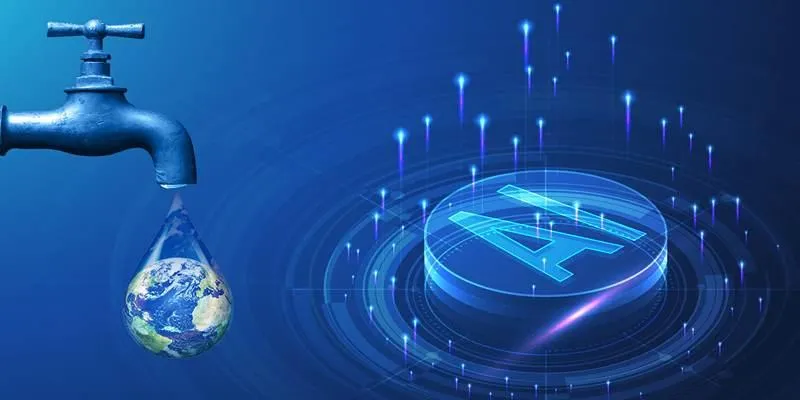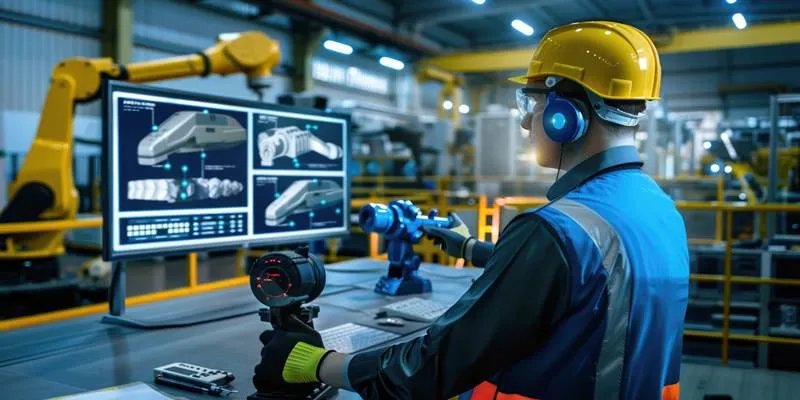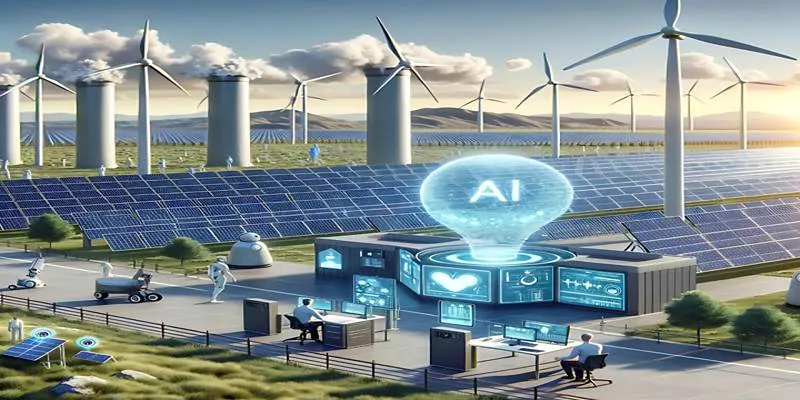Water is one of the Earth’s most vital resources, yet it faces constant threats from climate change, pollution, and overuse. Traditional water management methods are increasingly inadequate in addressing the growing demands and challenges. However, Artificial Intelligence (AI) is revolutionizing water management, making it more efficient, effective, and environmentally sustainable.
AI is increasingly utilized across various aspects of water management, including treatment, monitoring, distribution, and conservation. By leveraging AI-driven technologies , industries, governments, and households can better manage water resources, minimize waste, and ensure sustainability for future generations.
How AI is Transforming Water Management
AI-powered technologies are being employed across multiple fields to save water, reduce waste, and optimize operations. These innovations are crucial for ensuring future generations have access to clean and adequate water supplies, fundamentally changing water management practices.
Smart Water Monitoring Systems
Traditional methods of water monitoring involve manual data collection, which is often slow and inefficient. AI-powered smart monitoring systems utilize IoT devices, cloud computing, and big data analytics to track water usage, identify leaks, and monitor water quality in real-time.
- Leak Detection and Prevention: AI can identify leaks in water networks before they result in significant losses. Sensors placed in pipelines gather data, which AI programs analyze to detect and predict issues.
- Water Quality Monitoring: AI-powered systems can detect pollutants and harmful chemicals in water sources, ensuring the delivery of clean drinking water.
- Demand Forecasting: AI models use historical data, climate trends, and population growth to predict future water demand, aiding cities and towns in efficient water distribution planning.
AI in Agriculture for Efficient Water Use

Agriculture accounts for a significant portion of freshwater consumption, and inefficient irrigation can lead to substantial wastage. AI-based irrigation systems help farmers optimize water use, enhancing crop health and minimizing environmental impact.
AI-Powered Precision Irrigation
AI algorithms evaluate weather conditions, soil moisture levels, and crop requirements to determine optimal irrigation schedules. This ensures crops receive the right amount of water, avoiding over-irrigation or under- irrigation.
- Smart Sensors: These sensors monitor soil moisture and communicate with AI systems to automate irrigation regulation.
- Drought Prediction: AI analyzes climate trends to forecast droughts, enabling farmers to take preemptive measures.
- Automated Sprinkler Systems: AI-controlled sprinklers deliver water with precision, reducing water consumption and improving crop yield.
By adopting AI-driven irrigation solutions, farmers can boost productivity while conserving water resources.
AI for Urban Water Management
Urban areas face increasing water supply challenges due to population growth, climate change, and aging infrastructure. AI technologies enhance water distribution, wastewater treatment, and pipeline maintenance, promoting sustainability and cost reduction.
Predictive Maintenance for Water Infrastructure
Many cities struggle with aging water infrastructure, leading to leaks, bursts, and inefficiencies. AI-powered predictive maintenance systems analyze data from sensors and past failures to anticipate issues before they occur.
- Reduced Repair Costs: AI enables early issue detection, reducing emergency repairs and infrastructure replacement expenses.
- Lower Water Losses: Timely detection of pipeline leaks prevents unnecessary water wastage.
- Better Resource Allocation: AI-driven predictive models assist in planning future upgrades and maintenance schedules.
AI in Wastewater Treatment
Wastewater treatment is crucial for maintaining clean water and environmental sustainability. AI optimizes treatment processes by enhancing efficiency and reducing operational costs.
- Automated Monitoring: AI-powered sensors track pollution levels and adjust treatment parameters in real-time.
- Energy Efficiency: AI optimizes chemical usage and energy consumption in wastewater treatment plants.
- Water Recycling: AI identifies opportunities for water reuse, reducing reliance on freshwater sources.
AI in wastewater treatment not only boosts operational efficiency but also ensures compliance with environmental regulations.
AI in Flood Management and Water Conservation
Extreme weather events, such as floods and droughts, are increasingly common due to climate change. AI-driven models are used to predict and mitigate the impact of these disasters.
Flood Prediction and Response
AI-based flood monitoring systems analyze weather patterns, river levels, and satellite imagery to forecast potential flooding events.
- Early Warning Systems: AI can issue early warnings to communities, enabling preventive measures.
- Emergency Resource Allocation: AI assists authorities in efficiently distributing resources during floods.
- Real-Time Monitoring: AI-powered drones and sensors provide live updates on flood-prone areas.
AI in Water Conservation Efforts

AI-driven conservation strategies help industries and households reduce water consumption.
- Smart Meters: AI-powered water meters offer real-time water usage data and identify conservation opportunities.
- Water Recycling Programs: AI aids in designing efficient water reuse systems for residential and commercial buildings.
- Public Awareness Campaigns: AI analyzes social media trends and consumer behaviors to promote water-saving practices.
Challenges in Implementing AI in Water Management
Despite its benefits, AI adoption in water management faces several challenges:
- High Initial Investment: Implementing AI-driven water systems requires significant funding for infrastructure and technology.
- Data Privacy and Security: Large-scale data collection raises privacy and cybersecurity concerns.
- Technical Expertise: AI-based water management solutions require skilled professionals for development and maintenance.
- Regulatory Barriers: Governments must establish regulations to ensure AI-based water management solutions meet safety and environmental standards.
Conclusion
AI in water management is a powerful tool for ensuring sustainable water use, reducing waste, and improving efficiency across agriculture, urban infrastructure, and disaster prevention. While challenges persist, the benefits of AI-driven water management far outweigh the obstacles. By continuing to integrate AI into water conservation efforts, we move closer to a future where water is managed intelligently, ensuring its availability for generations to come.
 zfn9
zfn9























